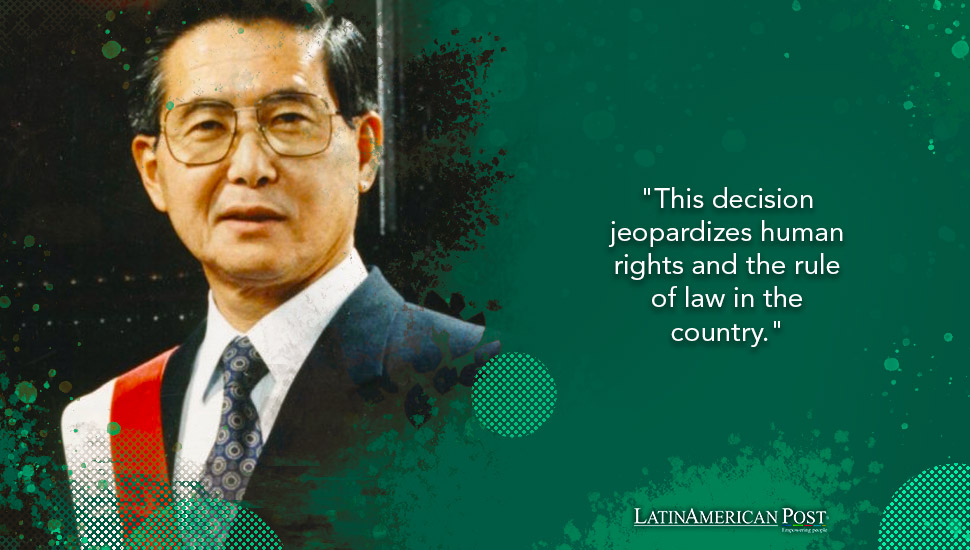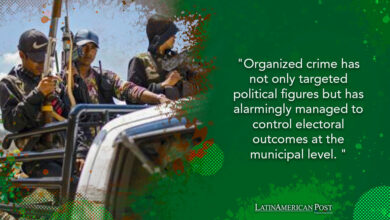Peru’s New Law Undermines Justice for Atrocity Victims

Peru’s recent enactment of a law preventing the prosecution of crimes against humanity committed before 2002 is a grave misstep. It shields perpetrators from justice and violates international law. This decision jeopardizes human rights and the rule of law in the country.
On Friday, Peru’s government took a disturbing step backward in its commitment to human rights by enacting a law that prevents the prosecution of crimes against humanity committed before 2002. This decision, which protects former President Alberto Fujimori and hundreds of military personnel implicated in heinous acts during the country’s internal armed conflict from 1980 to 2000, is a grave injustice to the victims and a violation of Peru’s obligations under international law.
The law was enacted without any comment from President Dina Boluarte, despite clear warnings from the Inter-American Court of Human Rights, which had explicitly directed the Peruvian government to annul the bill. By ignoring this order, Peru is not only contradicting its international commitments but also sending a message that accountability for the most severe crimes is negotiable.
A Blow to Justice and Human Rights
Peru’s new law represents a troubling departure from the principles of justice and accountability fundamental to the rule of law. Crimes against humanity, by their very nature, are among the most egregious violations of human rights. These are not ordinary crimes; they include acts such as genocide, war crimes, and systematic murder, often targeting civilians. Such atrocities cannot be overlooked or dismissed with time.
The United Nations, through its human rights chief Volker Türk, has rightfully condemned the enactment of this law. “Crimes against humanity and war crimes are among the most serious violations of international law, and neither amnesties nor statutes of limitations should extend to them,” Türk stated. The international community’s consensus is clear: those responsible for such crimes must be held accountable, regardless of when the crimes were committed.
Former President Alberto Fujimori’s government is infamous for its brutal crackdown during Peru’s internal conflict. Under his regime, countless human rights abuses were committed, including massacres, forced disappearances, and extrajudicial killings. These acts left a deep scar on the nation, and for many victims and their families, justice remains elusive.
By passing this law, Peru effectively closes the door on any future accountability for these crimes. It sends a chilling message that influential individuals can escape justice simply because of the passage of time. This is particularly egregious in cases where the state covered up or delayed investigations into these crimes.
Fujimori’s legacy is complex, marked by economic reforms and severe human rights abuses. However, no amount of economic progress can justify the atrocities committed under his rule. By shielding him and others from prosecution, Peru is not just denying justice to the victims; it is also erasing a critical part of its history, one that needs to be confronted and acknowledged rather than buried.
International Obligations Ignored
Peru’s decision to enact this law in defiance of the Inter-American Court of Human Rights blatantly violates its international obligations. The court had clarified that this bill contravened international law and instructed the Peruvian government to annul it. By disregarding this order, Peru undermines the court’s authority and sends a dangerous signal that international human rights standards are optional.
This move also puts Peru at odds with the broader international community, which has consistently upheld that crimes against humanity cannot be subject to statutes of limitations. The principle of universal jurisdiction, which allows for the prosecution of such crimes regardless of where or when they were committed, is a cornerstone of international justice. Peru’s new law is a direct challenge to this principle.
The enactment of this law is part of a broader backlash against human rights and the rule of law in Peru. In recent years, there has been growing concern about the erosion of democratic norms and the increasing willingness of political leaders to undermine the judiciary and other institutions that protect human rights.
This trend is deeply troubling, not just for Peru but for the region as a whole. Latin America has a long and painful history of military dictatorships, civil wars, and human rights abuses. Many countries, including Peru, made significant strides toward accountability and justice after these dark periods. The creation of truth commissions, the prosecution of war criminals, and the establishment of human rights institutions were all steps toward healing and reconciliation.
However, progress is now at risk. The new law is a stark reminder that the fight for justice is never over and that the gains can be easily undone. If Peru is allowed to shield those responsible for crimes against humanity from prosecution, it will set a dangerous precedent that other countries may follow.
The Importance of Accountability
Accountability for crimes against humanity is not just a matter of justice for the victims; it is also essential for the health of any society. When perpetrators of such crimes are allowed to go unpunished, it creates a culture of impunity that can lead to further abuses. It also sends a message that the lives of the victims do not matter and that their suffering can be ignored.
For Peru, the refusal to hold accountable those who committed atrocities during the internal conflict is a betrayal of the principles of justice and human dignity. It is a denial of the truth and a refusal to confront the past. True reconciliation can only be achieved when there is a full acknowledgment of the crimes committed and a commitment to ensuring they are never repeated.
Peru must reverse this grave mistake and recommit itself to upholding the principles of justice and human rights. This begins with the immediate annulment of the law and a renewed commitment to prosecuting those responsible for crimes against humanity. The government must also ensure that the judiciary is free from political interference and has the resources and support to do its work.
Furthermore, Peru should work closely with international human rights organizations and the Inter-American Court of Human Rights to ensure its laws and practices align with international standards. This includes reaffirming its commitment to the principle that there can be no statute of limitations for crimes against humanity.
In the long term, Peru must continue to invest in education and public awareness campaigns that promote a culture of human rights and the rule of law. This is essential to preventing the recurrence of the abuses that have scarred the country’s past and building a future based on justice, equality, and respect for human dignity.
The enactment of this law is a dark day for Peru and for all those who believe in justice and human rights. It is a betrayal of the victims of crimes against humanity and a violation of Peru’s obligations under international law. However, it is not too late to reverse course.
Also read: Peru Acquires Advanced Drones for Enhanced Military Intelligence
Peru’s leaders must act quickly to annul this law and ensure those responsible for the most severe crimes are held accountable. The future of human rights in Peru depends on it. The world is watching, and the victims of these atrocities deserve nothing less than full justice.





